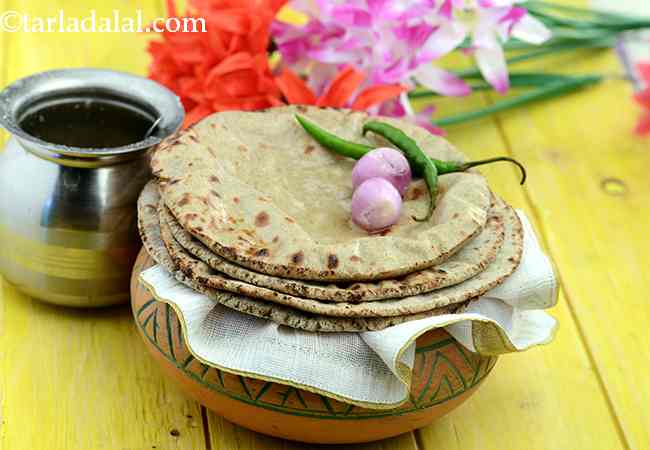How many calories does one serving of Bengali Masoor Dal have?
One serving (140 grams) of Bengali Masoor Dal (150 grams) has 109 calories. Out of which carbohydrates comprise 65 calories, proteins account for 29 calories and remaining calories come from fat which is 18 calories. One serving of Bengali Masoor Dal provides about 5.5 percent of the total daily calorie requirement of a standard adult diet of 2,000 calories.
Bengali Masoor Dal recipe serves 6, 140 grams per serving.
109 calories for 1 serving of Bengali Masoor Dal, Cholesterol 0 mg, Carbohydrates 16.3g, Protein 6.7g, Fat 1.9g. Find how much fibre, iron, calcium, zinc, magnesium, phosphorus, sodium, potassium, folic acid is present in Bengali Masoor Dal.
See Bengali masoor dal recipe | mushurir dal | peyaj diye masoor dal |
Making Bengali masoor dal is very simple. Moreover, you’ll love the panchforon tadka that packs this masoor dal Bengali style with unbeatable flavors. Learn how to make Bengali masoor dal recipe | mushurir dal | peyaj diye masoor dal |
Dal is a staple dish in every Indian household. Each region has its own style of making dal which vary in taste, and ingredients. This Bengali masoor dal is one such recipe that has a distinct and unique taste due to the use of panch phoran (mustard seeds, cumin seeds, fennel seeds, nigella seeds and fenugreek seeds) masala.
To make it slightly indulgent, do not forget to drizzle a dollop of ghee on top. Make this Bengali masoor dalfor a comforting meal and serve it with steamed rice and a dry sabji on the side.
Tips to make Bengali masoor dal: 1. Instead of slit green chillies you can add green chili paste to make the dal. 2. You can also add curry leaves in the tempering while making the dal. 3 .If you are serving it later add little water to adjust the consistency of the dal.
Is Bengali Masoor Dal healthy?
Yes, this is healthy.
Let's understand the Ingredients.
What's good.
1. Masoor Dal (split red lentils), Whole Massor : 1 cup of cooked Masoor dal gives 19 grams of protein. Being rich in Phosphorus it works with Calcium to build our bones. Whole Masoor or masoor dal is rich in Folate, Vitamin B9 or Folic Acid which helps your body to produce and maintain new cells, especially red blood cells. Masoor dal is is good for diabetics and a healthy heart. See detailed 10 health benefits of masoor dal.
2. Tomatoes ( Cherry tomatoes, Yellow tomatoes ) : Tomatoes are extremely rich source of Lycopene. Tomatoes are a powerful antioxidant, super rich in Vitamin C, good for heart. Tomatoes are a Pregnant women's friend and are rich in Folate or Folic Acid which helps your body to produce and maintain new cells, especially red blood cells. Read about 13 amazing benefits of tomatoes.
3. Onions (pyaz, kanda) : Raw onions are a very valuable source of vitamin C – the immune building vitamin. Along with other phytonutrients from onions, it helps to build WBC (white blood cells) which serves as a line of defence against illness. Yes, it’s a source of many antioxidants, the most important one amongst them being Quercetin. The quercetin in Onions promotes production of HDL (good cholesterol) and lowers total cholesterol in the body. The sulphur in onions act as a blood thinner and prevents blood clotting too. This in turn would lower blood pressure and good for heart, diabetics. Read the benefits of onions.
4. Coconut Oil : Use coconut oil instead of processed seed oils like soyabean oil, canola, sunflower oil, corn oil and other omega-6 rich oils should be used in very low amounts. Coconut oil is a medium chain triglycerides (MCT’s). Unlike other fats, they go directly from the gut to the liver. From here, they are then used as a source of energy. As the calories in MCT’s are used straight away, they are less likely to be stored as fats in the body. MCT's have shown to improve your brain and memory function, they also give a boost to your energy levels and improve your endurance. The MCT in Coconut oil reduces the LDL cholesterol (bad cholesterol) while increasing the count of HDL cholesterol, maintaining normal blood pressure and good for diabetics. See detailed benefits of coconut oil.
Can diabetics, heart patients and over weight individuals have Bengali Masoor Dal ?
Yes. Use coconut oil instead of processed seed oils like soyabean oil, canola, sunflower oil, corn oil and other omega-6 rich oils should be used in very low amounts. Coconut oil is a medium chain triglycerides (MCT’s).
Can healthy individuals have Bengali Masoor Dal ?
Yes, this recipe is good.
What is a healthy roti to have with Bengali Masoor Dal.
DAL + ROTI (cereal) enhances protein value
Combine chana dal with bajra roti, jowar roti, radish nachni roti recipe , basic ragi roti recipe or whole wheat roti, whole wheat bhakri recipe to make a healthy combination. Note that when you combine any dal with any cereal like bajra, jowar, ragi, buckwheat, barley or whole wheat to enhance the protein value.

Bajra Roti